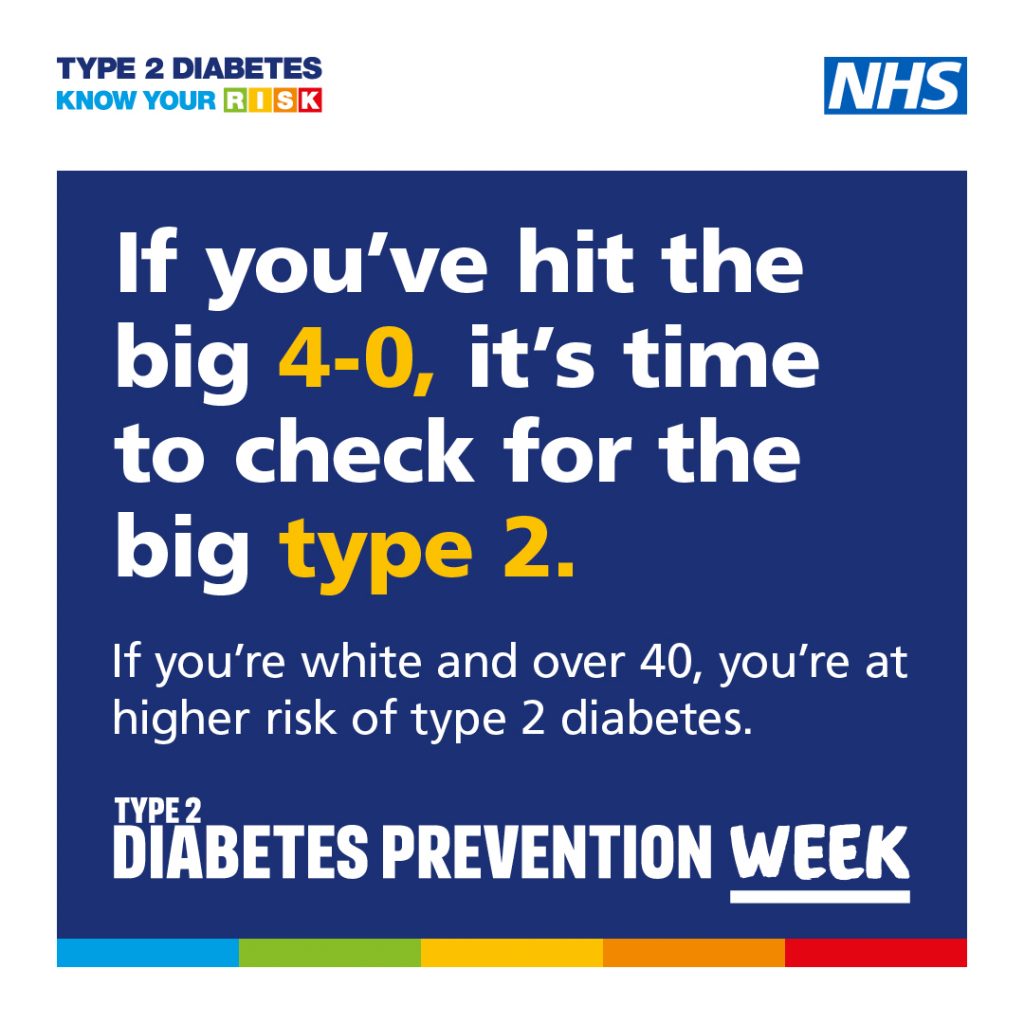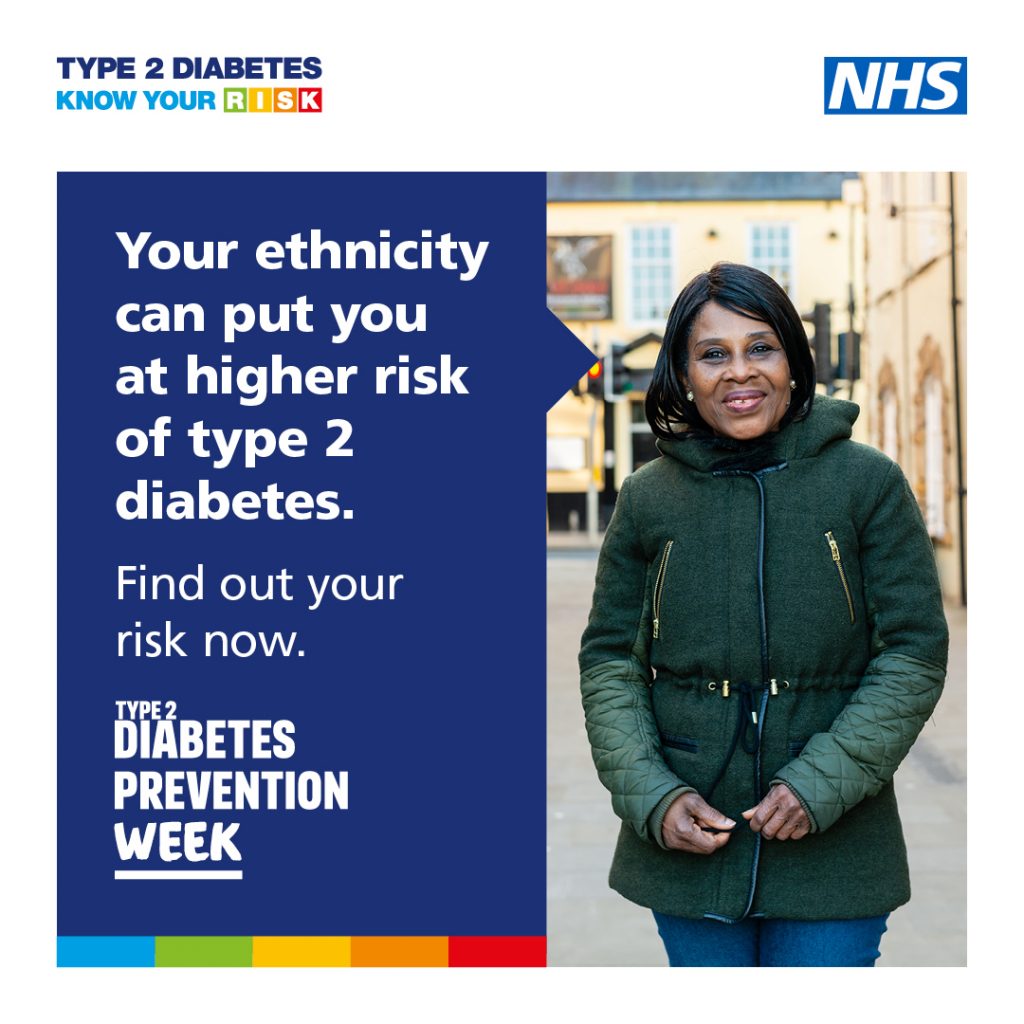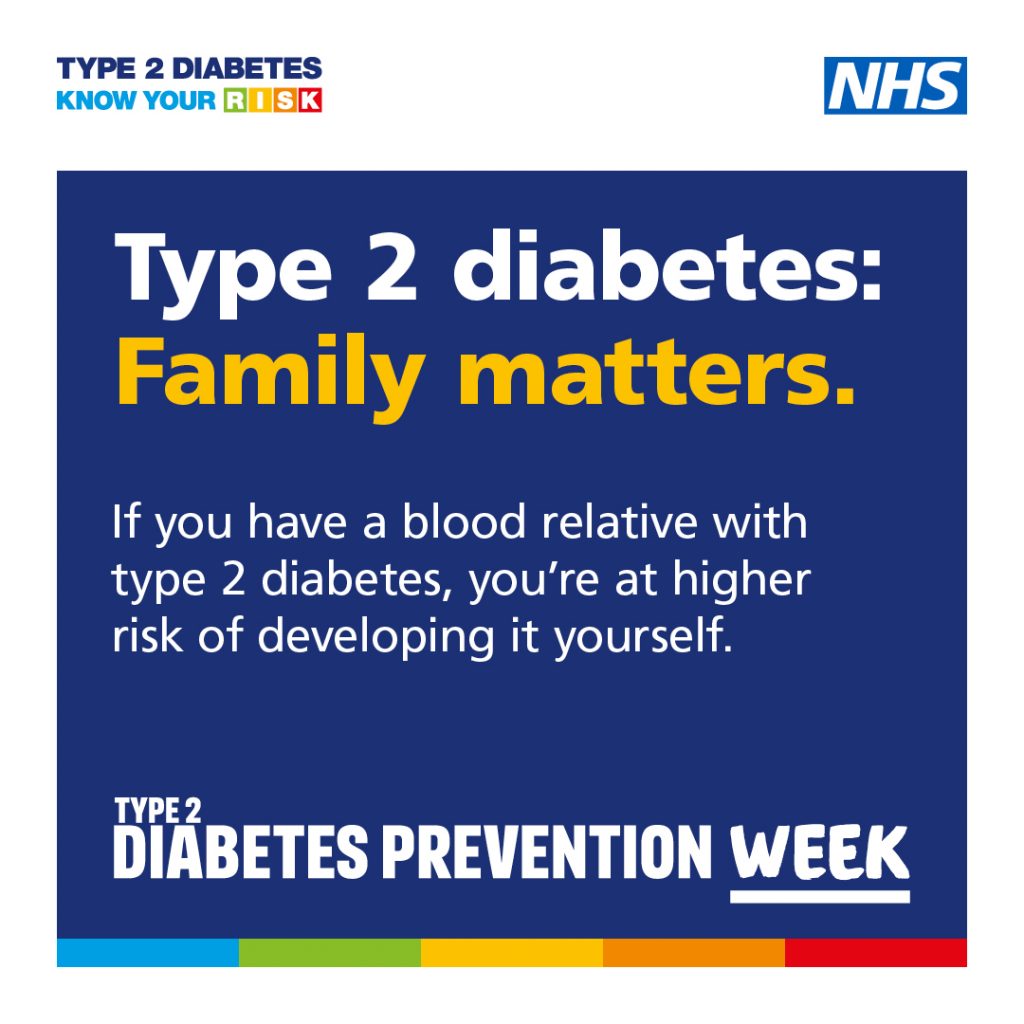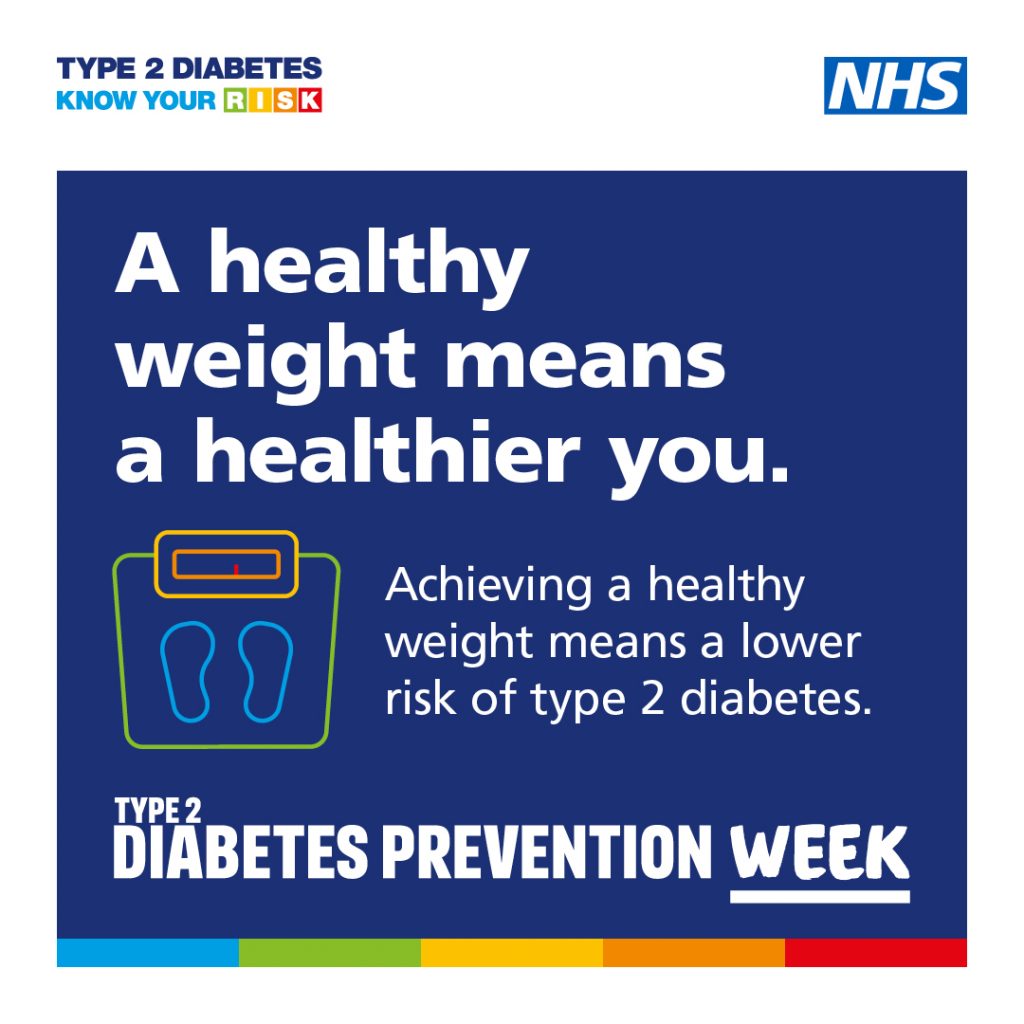Know your Risk: Diabetes Prevention Week
Diabetes is at an all-time high in the UK.
Last year, the number of people living with diabetes topped 5 million.
That’s according to Diabetes UK, who say there are 4.3 million people with diabetes and another 850,000 undiagnosed. Another 2.4 million are at risk of developing diabetes.
For Diabetes Prevention Week, let’s talk about the rising cases of diabetes, how it impacts your life and the NHS, and what you can do.
About Diabetes Prevention Week
Diabetes UK launched Diabetes Prevention Week in 2018 to raise awareness about the risk factors associated with type 2 diabetes.
The key messages about type 2 diabetes are:
- It increases the risk of developing other severe health conditions,
- Certain groups are at a higher risk
- It’s preventable with a healthy lifestyle.
Rising Cases and Impact
The number of people with diabetes increased by 400% between 1980 and 2014, according to the World Health Organisation.
Diabetes is a significant cause of blindness, kidney failure, heart attacks, stroke, and lower limb amputation.
Ten per cent of the entire NHS budget is spent on diabetes – over £10 billion annually.
Eighty per cent of that is spent on treating complications and other diseases caused by diabetes.
Because type 2 diabetes is preventable, a lot of effort is put into getting people to understand and reduce their risk.
Types of Diabetes and Symptoms
Diabetes is a condition in which blood sugar levels are too high. It occurs when the body can’t properly use or produce enough insulin, a hormone that helps regulate blood sugar.
The focus for Diabetes Prevention Week is Type 2 Diabetes.
That’s because it is the most common – 90% of people with diabetes have type 2. It is mainly linked to lifestyle factors like weight, diet, and exercise levels.
With Type 2 Diabetes, the body becomes resistant to insulin or doesn’t produce enough.
Type 1 Diabetes is when the body attacks cells that produce insulin. It usually develops in children or young adults and is most likely genetic.
There is also Gestational Diabetes, which happens during pregnancy and then goes away after giving birth. It can increase the risk of developing type 2 diabetes in later life, though.
Common symptoms of all kinds of diabetes include:
- Feeling hungry and thirsty more
- Needing to wee a lot
- Feeling very tired
- Losing weight unexpectedly
- Blurred vision
- Slow-healing sores
If you experience these symptoms, then you should speak with your Doctor.
People with diabetes might get some, all, or none of these symptoms and can live with it for years without diagnosis. That’s why knowing the risk is so important.
Know your risk
You are at greater risk of developing type 2 diabetes if you:
- Are Male
- Are over 40
- Or over 25 and of Black and South Asian descent
- Have family members with type 2 diabetes
- Have high blood pressure
- Have a high waist measurement or are overweight




Diabetes UK has a quick and easy online test to check your risk of diabetes.
What you can do
You can’t change your age or genes, but you can change the risk associated with lifestyle factors.
The main things you can do to reduce your risk are:
- Eat more healthily. Diabetes UK has ten tips for eating well.
- Get more active.
- Lose weight and reduce your waist size.
In this video, Pat talks about being told he was at risk of developing diabetes and the changes he made to his life.
Getting Help
If you experience any of the symptoms mentioned above, you should speak to your Doctor. You will have a blood test to see your blood sugar levels.
If you are at risk of developing diabetes, your GP might refer you to a Diabetes Prevention Programme. These online or in-person courses can help you make changes in your life that will reduce your risk.
If your blood sugar levels show you have already developed diabetes, your Doctor will talk to you about what that means for you.
Even after diagnosis, you can still control type 2 diabetes through dietary changes or medication. It is possible to reverse the effects and return to a safe, non-diabetic blood sugar level. In Gosforth and Jesmond, we also have our fantastic Health and Wellbeing Coaches, who offer nutritional and other lifestyle advice that can help people with diabetes live well.
